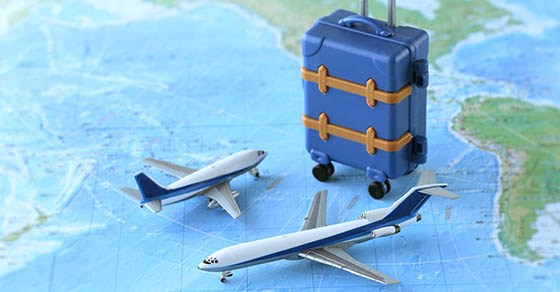As a business owner, you may travel to visit customers, attend conferences, check on vendors and for other purposes. Understanding which travel expenses are tax deductible can significantly affect your bottom line. Properly managing travel costs can help ensure compliance and maximize your tax savings.
Your tax home
Eligible taxpayers can deduct the ordinary and necessary expenses of business travel when away from their “tax homes.” Ordinary means common and accepted in the industry. Necessary means helpful and appropriate for the business. Expenses aren’t deductible if they’re for personal purposes, lavish or extravagant. That doesn’t mean you can’t fly first class or stay in luxury hotels. But you’ll need to show that expenses were reasonable.
Your tax home isn’t necessarily where you maintain your family home. Instead, it refers to the city or general area where your principal place of business is located. (Special rules apply to taxpayers with several places of business or no regular place of business.)
Generally, you’re considered to be traveling away from home if your duties require you to be away from your tax home for substantially longer than an ordinary day’s work and you need to get sleep or rest to meet work demands. This includes temporary work assignments. However, you aren’t permitted to deduct travel expenses in connection with an indefinite work assignment (more than a year) or one that’s realistically expected to last more than a year.
Deductible expenses
Assuming you meet these requirements, common deductible business travel expenses include:
- Air, train or bus fare to the destination, plus baggage fees,
- Car rental expenses or the cost of using your vehicle, plus tolls and parking,
- Transportation while at the destination, such as taxis or rideshares between the airport and hotel, and to and from work locations,
- Lodging,
- Tips paid to hotel or restaurant workers, and
- Dry cleaning / laundry.
Meal expenses are generally 50% deductible. This includes meals eaten alone. It also includes meals with others if they’re provided to business contacts, serve an ordinary and necessary business purpose, and aren’t lavish or extravagant.
Claiming deductions
Self-employed people can deduct travel expenses on Schedule C. Employees currently aren’t permitted to deduct unreimbursed business expenses, including travel expenses.
However, businesses may deduct employees’ travel expenses to the extent they provide advances or reimbursements or pay the expenses directly. Advances or reimbursements are excluded from wages (and aren’t subject to income or payroll taxes) if they’re made according to an “accountable plan.” In this case, the expenses
